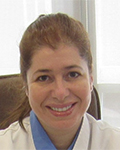Valéria Muoio, a neuroscientist and neurosurgeon at the University of São Paulo and Neuronline Community Leader, describes the important work being done in the Brazilian Amazon rainforest to implement initiatives to help care for and preserve the local inhabitants, as well as the rainforest itself.
In my latest expedition to the Brazilian Amazon rainforest, I observed the complex and multifaceted dynamics of the region. As both a physician and a neuroscientist, I witnessed many problems among underserved populations (indigenous tribes and native communities, as well as non-indigenous inhabitants) enduring precarious living conditions. Mental health issues were notably prevalent. But I also witnessed remarkable initiatives in mental health care and neuroscience. These initiatives, developed with exceptional ingenuity, persist and thrive despite the constraints of limited resources. Though this is a short report, the issues faced in the Amazon are so much bigger and deserve time, dedication, and respect.
The Forest
The Amazon, or the Amazon rainforest, is an area of unique biodiversity, spread over nine Latin American countries, 60% of which is in Brazilian territory. As one of the last refuges on Earth, it is an essential region for our livelihoods and one of the main regulators of the climate, freshwater reserves, and global biodiversity. Many species have not yet been described, as well as many niches of mineral richness are unknown – biodiversity that may keep the cure for cancer, Parkinson’s, or other diseases.
However, there is also the dark aspect of this natural exuberance, where economic interests, driven by the biological and mineral wealth of the region, put at risk all the forms of life that exist there. Unsustained exploitation, deforestation, and forced displacement of local populations threaten this immense biological potential.
 The endless rainforest.
The endless rainforest.
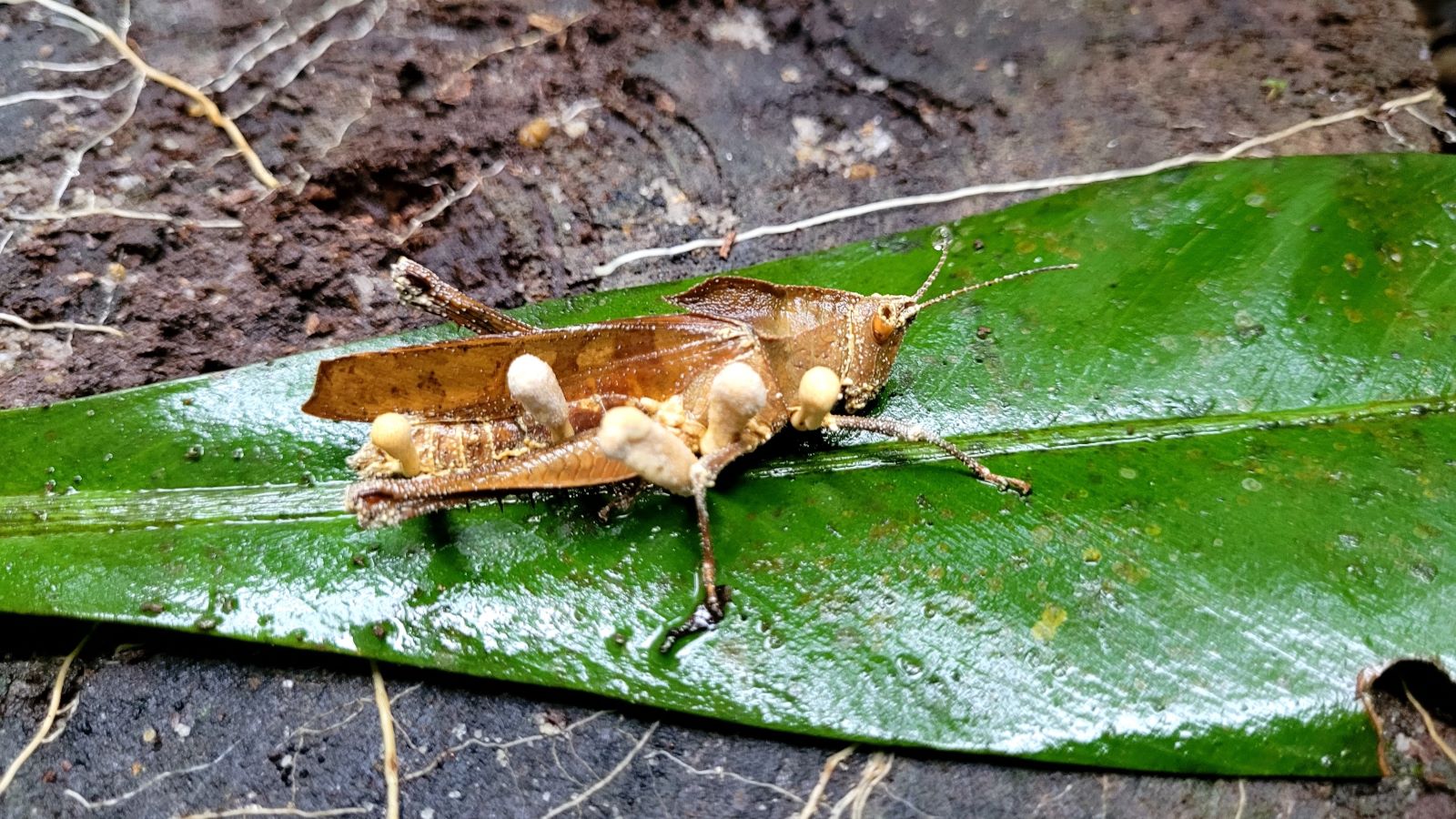 Look closely- the fungus is growing and taking over the locust’s body. Some of these fungi have medical properties, like antimicrobial function. Some native tribes use it to heal wounds.
Look closely- the fungus is growing and taking over the locust’s body. Some of these fungi have medical properties, like antimicrobial function. Some native tribes use it to heal wounds.
The People
The true custodians of this land are the indigenous peoples, who face the challenges of deforestation, loss of their territories, and diseases introduced by colonization. In addition, they suffer from the contamination of their natural resources and the destruction of their habitat in the name of economic interests.
The unbridled transformation of the environment by the so called “civilization” results in precarious health conditions, particularly regarding the mental health of indigenous populations. Advancing development brings with it a host of mental illnesses, such as anxiety, depression, and even an epidemic of suicides, especially among young people who struggle to find their place in a rapidly changing world.
Assistance and outreach to these people is challenging, not only because of the cultural aspects. It is a relationship of trust and respect, and therefore, it takes a while for the bonds to strengthen. An additional challenge is the great distance between the settlements. Some villages are in the heart of the forest and can only be reached after 20 days of travelling by boat, sometimes longer.
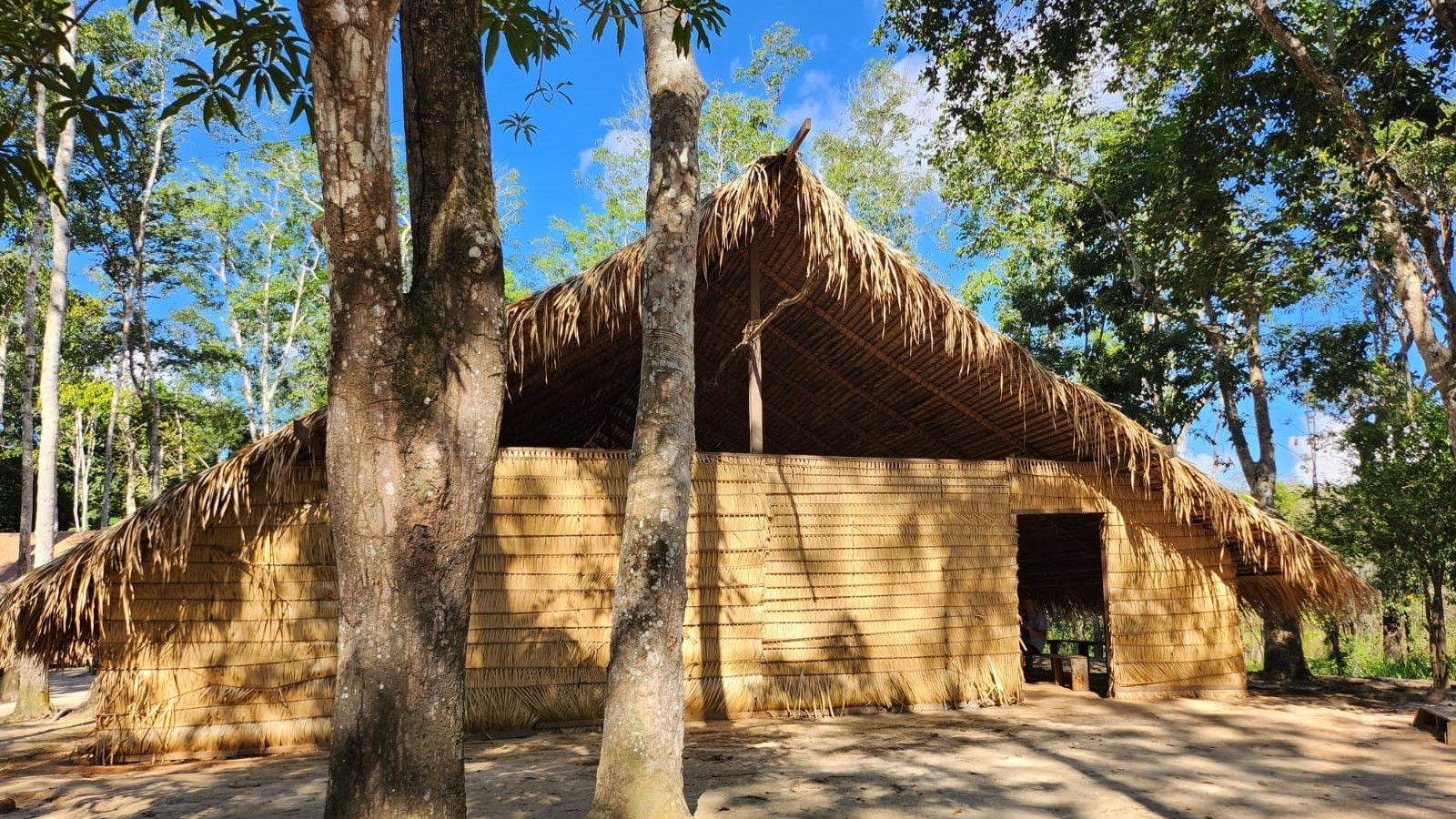 The collective ceremonial house – Oca – of the Tucano people.
The collective ceremonial house – Oca – of the Tucano people.
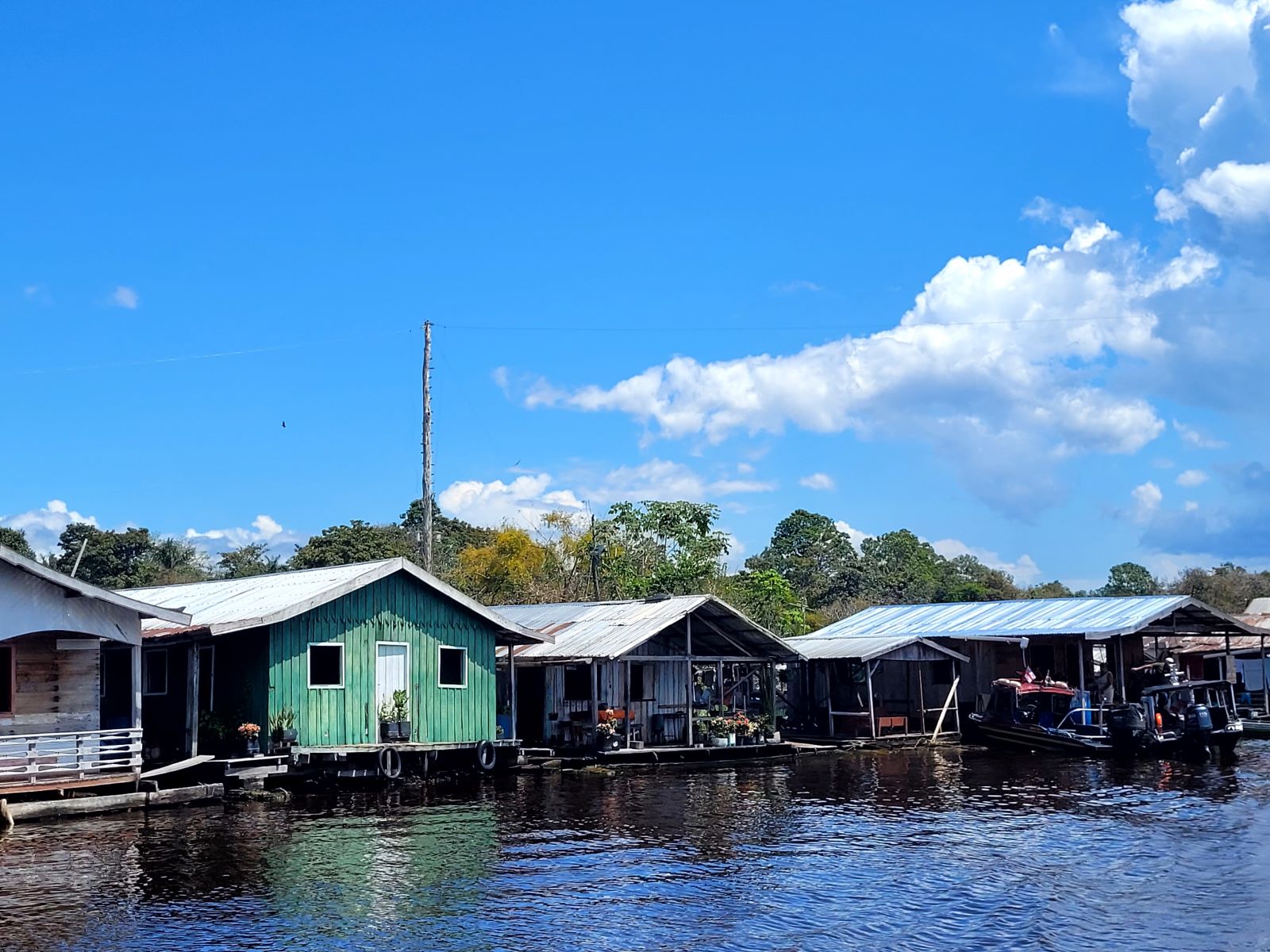 Floating houses of riverside populations of the great Amazon River. This community is one that often needs to receive help from health agents coming from the capital, Manaus.
Floating houses of riverside populations of the great Amazon River. This community is one that often needs to receive help from health agents coming from the capital, Manaus.
The Fighters
Despite the challenges, there are dedicated individuals who fight for the well-being of these communities. In the city of Manaus, considered the metropolis of the Amazon, there are people engaged not only with the preservation of the forest, but also with the application of scientific knowledge to promote progress. One example is my good friend Robson Amorim , a leader in the field of neurosurgery, who leads efforts to provide quality medical care and conduct research in neuroscience.
Amorim's research includes clinical studies on head trauma care in remote areas and identification of molecular markers of severity in head trauma. The molecular studies are carried out at the Federal University of Amazonas (UFAM), where he works with talented and hardworking people.
But the most audacious and promising project that Amorim is taking part in is the use of Amazonian plant extract, and that is when I saw his eyes light up with excitement. Despite obeying the secrecy required in innovative research, Amorim said that with international partnerships, there will soon be experiments at UFAM with organoids treated with compounds extracted from plants from the Amazon jungle, such as Banisteriopsis caapi, the main ingredient in ayahuasca tea. The expectation is that compounds like these will be useful in the treatment of neurodegenerative diseases, such as Parkinson's and Alzheimer's.
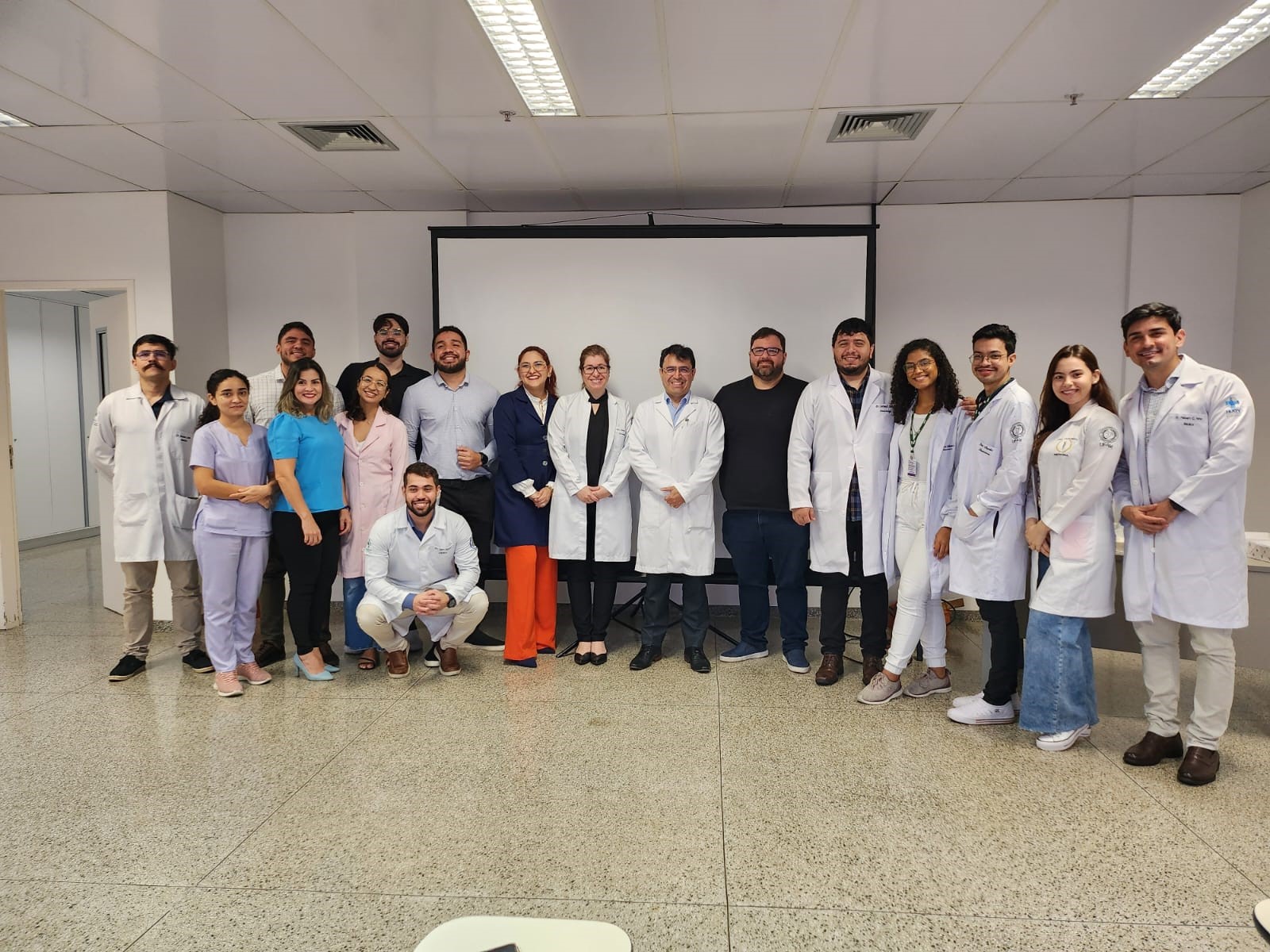 Robson Amorin (seventh from right) and his amazing multidisciplinary team.
Robson Amorin (seventh from right) and his amazing multidisciplinary team.
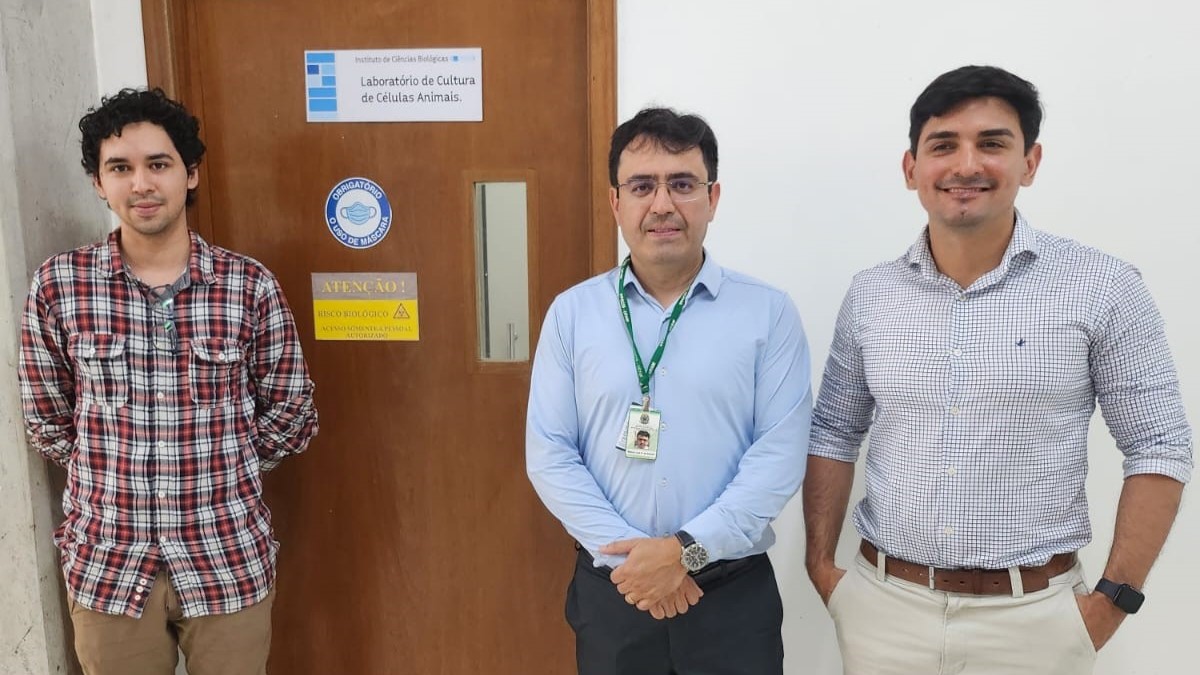 From left to right: Jimmy Hayden-Linhares (biotechnologist), Paloam Cardoso Nôvo (senior resident in neurosurgery) and Robson Amorim at the Animal Cell Culture Laboratory at the Federal University of Manaus.
From left to right: Jimmy Hayden-Linhares (biotechnologist), Paloam Cardoso Nôvo (senior resident in neurosurgery) and Robson Amorim at the Animal Cell Culture Laboratory at the Federal University of Manaus.
Another inspiring person who works tirelessly for the well-being of indigenous and nonindigenous populations is Pedro Elias de Sousa, the deputy coordinator of a project telemonitoring high-risk prenatal care in remote regions of the Amazon (TelePNAR), and deputy coordinator of UNASUS UFAM, the public health care system in the Amazon. De Sousa shared with me some of the initiatives in mental health among vulnerable populations, which is now an absolute priority for them. With the help of artificial intelligence and telemonitoring, it is hoped to bring health and assistance without interfering with the cultural autonomy of the communities.
My final message
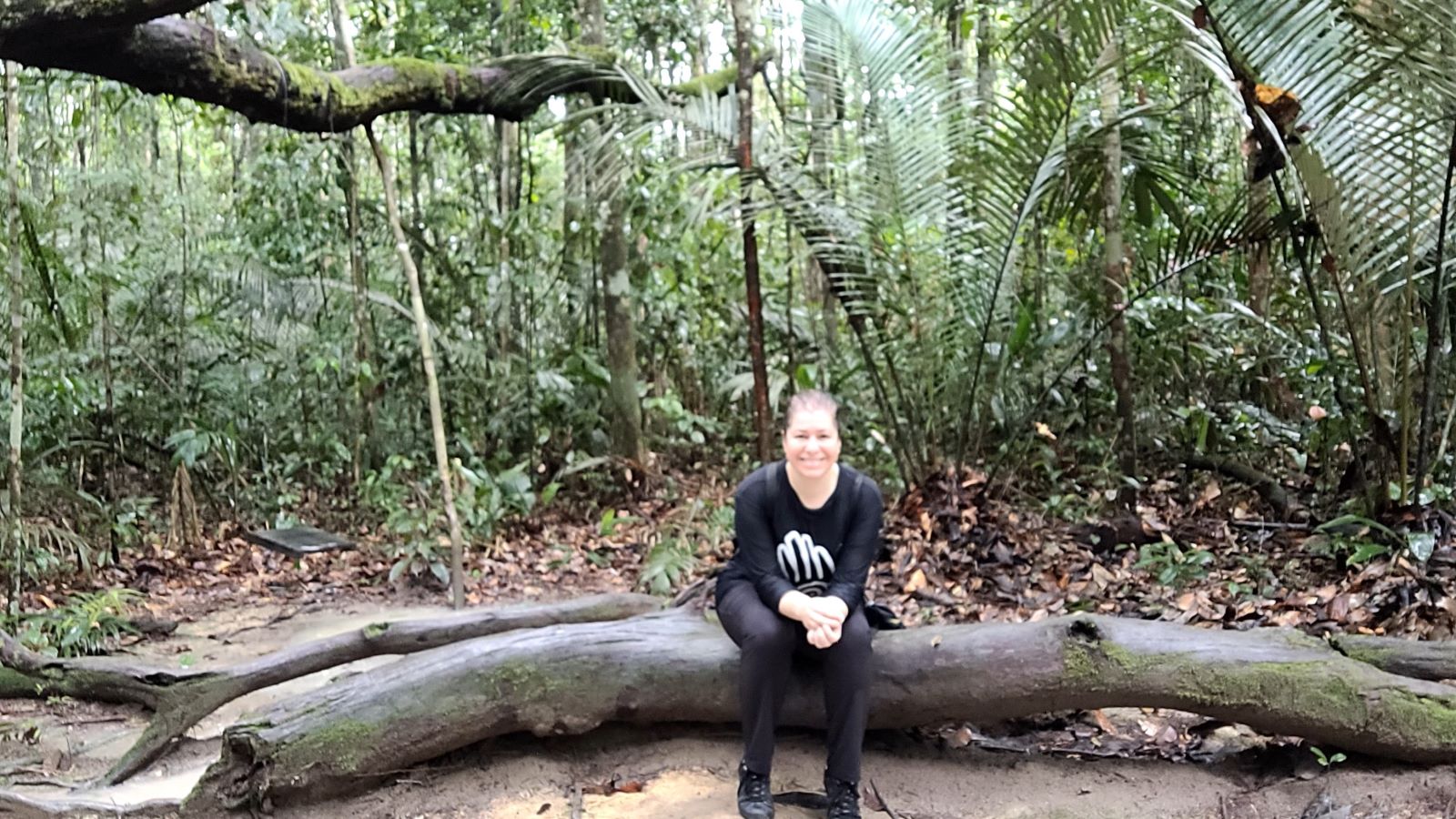
It goes without saying that I am deeply passionate about the rainforest and its people. It is imperative that we implement conscious and responsible initiatives focused on preservation and care for the local inhabitants. Simultaneously, it is crucial to respect the forest, maintaining the delicate balance it requires. The forest holds immense potential to benefit humanity, but this necessitates reciprocal respect and care. There are many dedicated and capable individuals involved in various initiatives, making us proud of the contributions of human scientists.
Please contact me via email or Instagram if you wish to learn more or become more involved in this endeavor.

